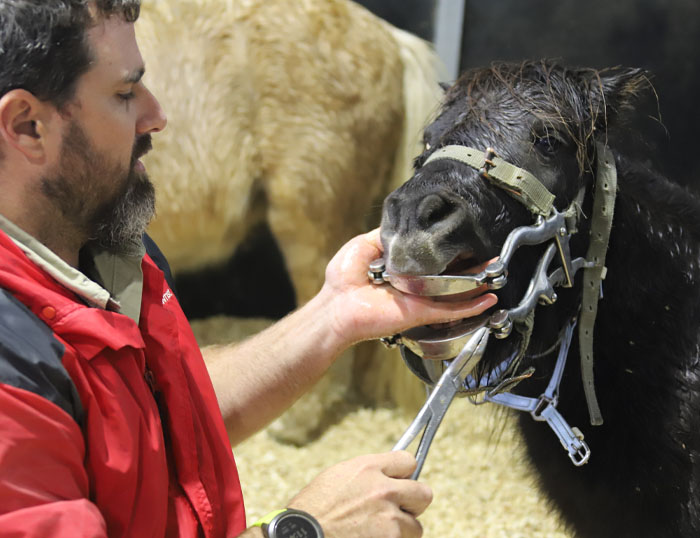When it comes to the health of young horses, one of the most important aspects to consider is their dental health. Baby horse teeth play a crucial role in their overall well-being, affecting their ability to eat, their behavior, and even their performance. Understanding how these teeth develop and how to properly care for them is essential for any horse owner or enthusiast.

The Importance of Baby Horse Teeth
The dental health of a baby horse, or foal, is vital from the very beginning. As they grow, their teeth help them to chew food properly, ensuring they get the nutrients they need to develop strong and healthy. Poor dental health can lead to a host of problems, including malnutrition and behavioral issues.
The Development of Baby Horse Teeth
When Do Foals Get Their First Teeth?
Foals are typically born with no teeth, but this changes quickly. Within the first week, they begin to develop their first set of teeth, known as deciduous or ‘baby’ teeth. These teeth are crucial for the foal as they transition from nursing to eating solid food.
How Many Teeth Do Foals Have?
By the time a foal is eight months old, they usually have a full set of 24 deciduous teeth. This includes 12 incisors and 12 premolars, which they will eventually lose as they grow their permanent teeth.
Caring for Baby Horse Teeth
Regular Dental Check-Ups
Just like humans, horses need regular dental check-ups to ensure their teeth are healthy. It is recommended to have a professional, such as an equine dentist or veterinarian, examine the foal’s teeth at least once a year. For more detailed information on the differences between equine dentistry and veterinary care, visit Pro Horse World.
Signs of Dental Problems
There are several signs that may indicate a foal is experiencing dental problems. These include difficulty eating, excessive drooling, and bad breath. If any of these signs are present, it is important to seek professional advice as soon as possible.
Common Dental Issues in Foals
Retained Deciduous Teeth
Sometimes, a foal’s baby teeth do not fall out as their permanent teeth come in. This can lead to overcrowding and misalignment, causing discomfort and potential health issues. Regular check-ups can help prevent this problem.
Malocclusions
Malocclusions, or misaligned teeth, can occur in foals and may require intervention. These misalignments can affect the horse’s ability to chew properly and may lead to more serious dental issues if not addressed. Learn about underbites in horses for more insights.
The Transition to Permanent Teeth
When Do Foals Lose Their Baby Teeth?
Foals typically begin to lose their baby teeth around the age of two and a half years. This process continues until they are about five years old, by which time all their permanent teeth should have come in.
The Role of Proper Nutrition in Dental Health
A balanced diet rich in essential nutrients can promote healthy tooth development in foals. Ensuring that they receive the proper vitamins and minerals is key to preventing dental issues.
The Impact of Dental Health on Overall Well-being
Maintaining good dental health in foals is critical for their overall well-being. Dental issues can lead to pain, infections, and other health problems that can significantly impact a horse’s quality of life. Regular dental care helps to prevent these issues and ensures that foals grow up healthy and strong.
Resources for Further Reading
For more information on equine dental care, you can explore The Open Sanctuary Project which offers a comprehensive guide to equine dental health.

FAQ
What are the first signs of dental issues in foals?
Some of the first signs include difficulty eating, excessive drooling, and bad breath.
How often should a foal’s teeth be checked?
Foals should have their teeth checked at least once a year by a professional.
What happens if a foal’s baby teeth do not fall out?
If a foal’s baby teeth do not fall out, it can cause overcrowding and misalignment, which can lead to other dental problems.
This article contains affiliate links. We may earn a commission at no extra cost to you.
